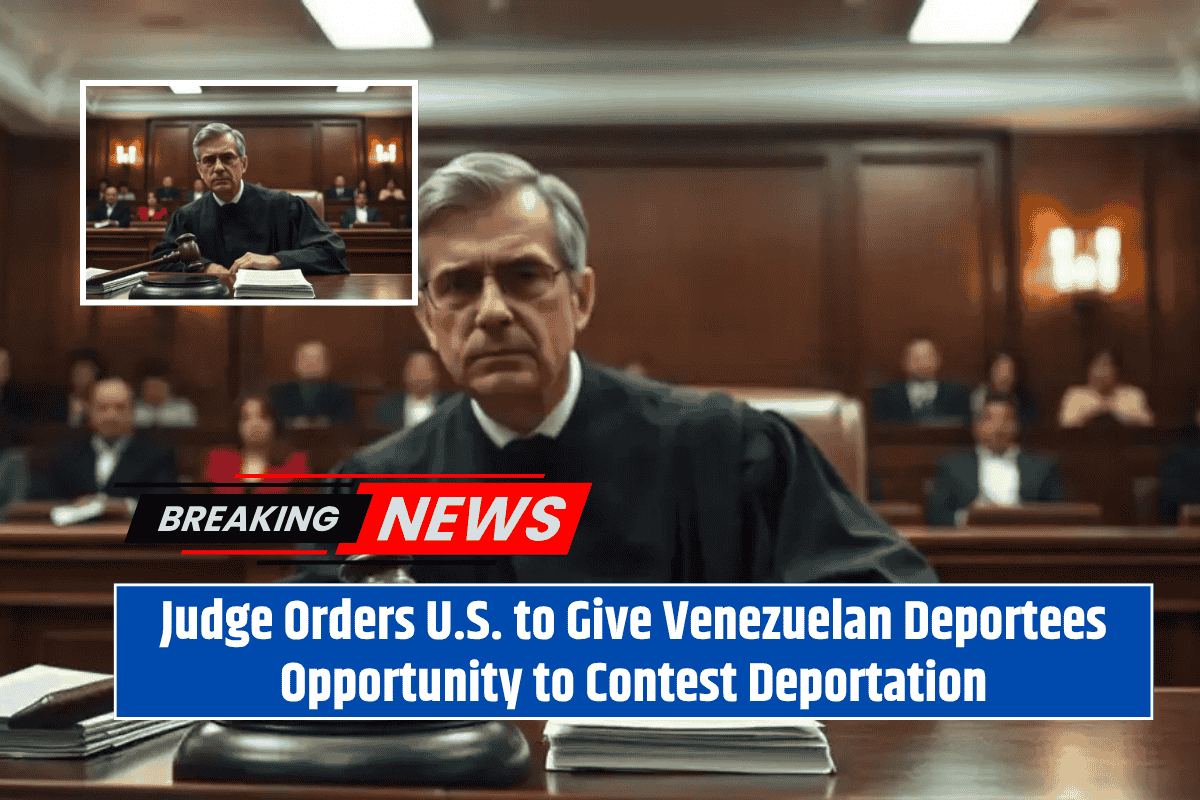In a significant legal ruling, a federal judge in Washington, D.C., has ordered the Trump administration to provide more than 100 Venezuelan men the chance to contest their deportation. These men were sent to a maximum-security prison in El Salvador earlier this year, sparking a heated legal battle.
Background of the Case
The deportations of 137 Venezuelan men occurred on March 15, under the 1798 Alien Enemies Act. This law, which dates back to wartime, allows the U.S. government to deport foreign nationals during a foreign invasion.
The Trump administration used this law to deport Venezuelans they believed to be connected to gangs, particularly the Tren de Aragua, a notorious prison gang. However, many of these men have not been charged with any crimes, and several federal judges have questioned the application of this law in this case.
Judge’s Ruling
U.S. District Judge James Boasberg ruled that the deportation process for the 137 Venezuelan men was flawed. He concluded that their due process rights were violated, as they were not given a chance to challenge their deportation before it took place. The judge emphasized that these men must now be given the opportunity to seek relief through habeas corpus, a constitutional principle that allows individuals to challenge their detention.
The Justice Department was given one week to outline how it plans to provide these men with the opportunity to contest their deportation. Boasberg made it clear that the deportees should be treated as if they had never been removed from the U.S., and they must be allowed to seek legal recourse.
Government’s Position
The Trump administration has defended the deportations, claiming that all the men sent to El Salvador are dangerous gang members. However, a report from “60 Minutes” and CBS News revealed that most of the deportees have no criminal charges or convictions. Many of the men had their deportation based on flimsy or unsubstantiated claims of gang membership.
One such case is Andry Romero Hernandez, a gay makeup artist who was photographed crying when transferred to the CECOT prison in El Salvador. Judge Boasberg expressed concern about the government’s broad labeling of the deportees as gang members, noting that evidence suggests many of them have no connection to gangs.
Legal Challenges and Contempt Findings
This ruling is part of a broader legal challenge spearheaded by the American Civil Liberties Union (ACLU). The ACLU has argued that the deportations under the Alien Enemies Act violate the constitutional rights of the individuals involved. Earlier this year, Judge Boasberg had blocked the deportations under this law, but after an appeal, the U.S. Supreme Court allowed the Trump administration to restart removals. However, the Supreme Court also ruled that those being deported must be given at least some due process rights, including notice before removal.
Despite this, the Trump administration has continued to face legal setbacks. In April, Judge Boasberg found that the government may be in contempt for disregarding his previous orders concerning the deportation process. The judge noted that the U.S. government had failed to turn around planes carrying deportees, even after his directive to do so.
The Path Forward
The case continues to evolve, with the Trump administration asserting that it no longer has custody over the deported Venezuelan men, as they are now under the control of the Salvadoran government. Despite this claim, the ACLU and Judge Boasberg argue that the U.S. government is still responsible for ensuring the deportees’ rights are protected.
This ongoing legal battle has put the Trump administration in a difficult position, as the courts continue to scrutinize the use of the Alien Enemies Act and the treatment of these Venezuelan deportees. The administration has faced repeated criticism for its handling of the case, with political figures and legal experts questioning the fairness and legality of the deportation process.
The legal fight over the deportation of Venezuelan men to El Salvador is far from over. Judge Boasberg’s ruling emphasizes the importance of due process rights for deportees and challenges the government’s broad use of wartime laws.
The case raises questions about the Trump administration’s approach to immigration and deportation, particularly for those accused of gang affiliation without clear evidence. As the legal process unfolds, it will likely continue to draw attention to issues of immigration, due process, and human rights.
